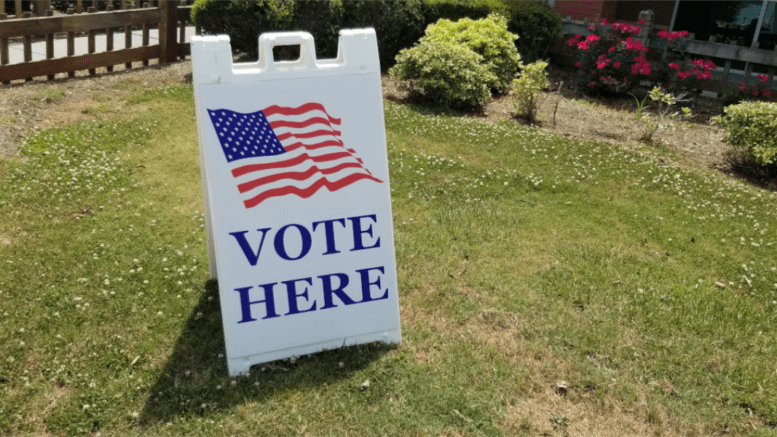by Stanley Dunlap, Georgia Recorder [This article first appeared in the Georgia Recorder, republished with permission]
October 11, 2023
During a Fulton County court hearing Tuesday, the Fulton County District Attorney’s office asserted that Kenneth Chesebro did not have attorney-client privilege when he arranged meetings of alternate GOP electors to cast false ballots in former President Donald Trump’s favor in the 2020 election.
Fulton prosecutors and Chesebro’s attorneys spent two-and-a-half hours facing off in Superior Court debating whether there was enough evidence to prosecute Chesebro for seven felony conspiracy and fraud charges in the 2020 presidential election interference case.
On Oct. 23, Chesebro and Texas attorney Sidney Powell are set to stand trial in a racketeering case in which Trump, several members of his inner circle, and other supporters are accused of conspiring to overturn 2020 election results in Georgia and other battleground states where President Joe Biden won.
Fulton prosecutor Donald Wakeford said Tuesday that District Attorney Fani Willis’ team isn’t disputing there appears to be some type of attorney-client relationship between Chesebro and some of the people he communicated with in the weeks following the Nov. 3, 2020 election.
Wakeford insisted that Chesebro also emailed his memos to prospective fraudulent electors in a half dozen states who weren’t legal representatives of Chesebro. In Georgia, Chesebro consulted with Georgia Republican Party Chairman David Shafer about executing the plan. Shafer, who served as a Trump elector in 2020, is one of 19 co-defendants in the Fulton interference case.
There is evidence beyond the memos and other emails that defendants reference in the motion that prove Chesebro committed fraud, Wakeford said.
“If the client is the Trump campaign, that obviously means certain people are arguably going to fall within the attorney-client relationship,” he said. “If the client is anyone engaged in litigation in Georgia, such as David Shafer, that obviously changes things quite a bit. If it was only the Trump campaign in Wisconsin, that changes everything.”
Chesebro’s attorneys submitted five documents in their motion that they argue prove that he was providing legal advice for Trump’s 2020 re-election bid, as well as other individuals acting on the campaign’s behalf in several states.
Chesebro’s attorney Scott Grubman argued that the state doesn’t have enough independent evidence to charge Chesebro with fraud if the legal memos and emails mentioned in the indictment are considered to be confidential communications between a lawyer and his clients.
“We would argue that Mr. Shafer and (other electors) were acting as agents of the Trump campaign at the time,” Grubman said.
At the end of Thursday’s hearing, Judge Scott McAfee ordered prosecutors to present other evidence of Chesebro’s alleged fraud conspiracy besides the documents challenged under attorney privilege law. McAfee also asked the defense lawyers to turn over any documents that show Chesebro and members of the Trump campaign entered into any type of legal agreement.
“It can simply be a bullet list saying here are the facts that we contend we’re going to introduce at the trial,” McAfee said to prosecutors. “Here’s why we think it shows that a crime was committed outside of these documents.”
Chesebro attended his motion hearing in Fulton County Superior Court. His first formal outreach in the electoral plot came on Nov. 18, 2020, when he emailed James Troupis, a lawyer for the Trump Campaign in Wisconsin, with details about how Wisconsin electors could meet and cast votes for Trump on Dec. 14, 2020.
Chesebro also wrote a Dec. 9, 2020, memo that expanded the strategy to create slates of Trump electors in Georgia and five other states where Trump had lost the election. He also provided the Trump campaign with a detailed plan on how Vice President Mike Pence could take unilateral control over the electoral vote count in Congress in order to prevent the certification of Biden. Pence and White House attorneys rejected the scheme as beyond the powers of a vice president, who is charged with a largely ceremonial duty to certify electoral vote counts.
Chesebro’s lawyers noted that the memos provide legal advice on how to appoint the alternate slate of electors in Georgia and other states, down to how ballots must be mailed. Additionally, they challenged the narrative that the GOP electors cast “false” ballots.
Chesebro’s attorneys cited a Nov. 23, 2020, statement about Republican Gov. Brian Kemp’s formal certification of the 2020 election, in which Kemp declared that his action paved the way for the Trump campaign to pursue other legal options, including a separate recount.
Georgia Recorder is part of States Newsroom, a network of news bureaus supported by grants and a coalition of donors as a 501c(3) public charity. Georgia Recorder maintains editorial independence. Contact Editor John McCosh for questions: info@georgiarecorder.com. Follow Georgia Recorder on Facebook and Twitter.
